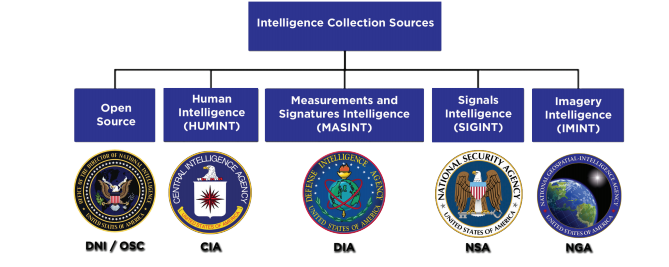
Intelligence is a discipline that exploits a number of information collection and analysis approaches to provide guidance and direction to policymakers/commanders in support of their decisions. This is achieved by providing an assessment of available data from a wide range of sources, directed towards the policymakers’ mission requirements, or responding to focused questions as part of the operational or campaign planning activity. To provide an informed analysis, the policy maker’s information requirements are first identified. These information requirements are then incorporated into a process of intelligence collection, analysis, and dissemination.
Areas of study may include the operational environment, hostile, friendly, and neutral forces, the civilian population in an area of combat operations, and other broader areas of interest. Intelligence activities are conducted at all levels, from tactical to strategic, in peacetime, the period of transition to war, and during a war itself.
Most governments maintain a military and nonmilitary intelligence capability to provide analytical and information collection personnel in both specialist units and from other arms and services. The intelligence capabilities interact with civilian intelligence capabilities to inform the spectrum of political and military activities. Personnel selected for intelligence duties may be selected for their analytical abilities and personal intelligence before receiving formal training.
There are various kinds of intelligence. They are military, political, economic, social, environmental, health, and cultural, which can provide valuable information for policy decisions. Many people view intelligence as gathered through secret or covert means. While some intelligence is indeed collected through clandestine operations and known only at the highest levels of government, other intelligence consists of widely available information. There are five main ways of gathering intelligence that is often collectively referred to as “intelligence collection disciplines” or the “INTs.” Most nations, and many sub-national and private organizations, have HUMINT capabilities that they use to collect data on their adversaries and competitors. These collection capabilities, however, are often limited by the technological capabilities of the intelligence organization. Historically, less technologically capable nations have been unable to gain access to information; however, this situation is changing.



Post your comment on this topic.